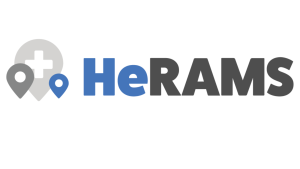Monitoring health system availability in fragile settings: HeRAMS deployment in western Oromia, Ethiopia
Disruptions to health systems, particularly in crisis-affected settings, significantly hinder access to essential health services. These challenges are compounded when decision-makers lack timely, accurate, and actionable data to assess needs and allocate resources effectively. The Health Resources and Services Availability Monitoring System (HeRAMS)—a World Health Organization (WHO) led initiative—addresses this critical gap by providing dynamic, real-time information on the availability and functionality of health services and infrastructure. Designed for flexibility, HeRAMS is well-suited to operate in low-resource, rapidly evolving contexts, supporting both emergency response and long-term health system strengthening.
Following successful implementations in Ethiopia’s Tigray and Afar regions, the Federal Ministry of Health, in collaboration with the Ethiopian Public Health Institute, the Oromia Regional Health Bureau, and WHO, initiated the rollout of HeRAMS in the Oromia Region. The most recent deployment focused on the Western Cluster, specifically targeting the zones of East Wellega, Horo Gudru Wellega, West Wellega, Kellem Wellega, and the towns of Nekemte and Nadjo.
The objectives of the HeRAMS initiative in Oromia were twofold: to establish a comprehensive, real-time mapping of health facilities and service availability, and to enable more accurate and timelier, data-driven prioritization of health interventions. The initiative also aimed to strengthen preparedness and response capacities in fragile and conflict-affected areas.
A regional workshop was held in Nekemte Town, bringing together representatives from all targeted zones. The initiative was technically supported by WHO received generous financial backing from the European Union Civil Protection and Humanitarian Aid Operations (ECHO). Participants included zonal and district health officials, health facility managers, and frontline healthcare workers.
During the workshop and subsequent data collection phase, 292 health professionals were trained on the HeRAMS methodology and digital data entry processes. Health facility-level data were successfully uploaded into the HeRAMS platform for a total of 1,307 Health Service Delivery Units (HSDUs) across the six administrative areas. This effort reflects a coordinated and comprehensive approach to capturing health service availability across both urban and rural contexts.
The implementation of HeRAMS in the Western Oromia Cluster yielded several important lessons. Decentralized data ownership proved effective in enhancing the accuracy and completeness of the data, as local health teams actively participated in data validation and entry. Additionally, the modular and user-friendly design of the HeRAMS platform enabled efficient deployment, even in areas with limited internet connectivity and infrastructure. However, the experience also highlighted the need for continued investment in digital infrastructure and capacity-building to support ongoing data updates and ensure the long-term sustainability of the system.
The successful deployment of HeRAMS in Western Oromia represents a significant milestone in Ethiopia’s health systems monitoring efforts. As the tool is scaled to additional regions, it offers the potential to enhance real-time visibility of health service delivery, strengthen emergency preparedness, and promote equitable distribution of health resources. Sustained collaboration between the government, WHO, and development partners will be crucial to maximizing the value of HeRAMS in advancing Universal Health Coverage and aligning health system efforts with the humanitarian-peace-development nexus.
Technical Contact
Dr Abiy Girmay
Health Service Resilience Officer



